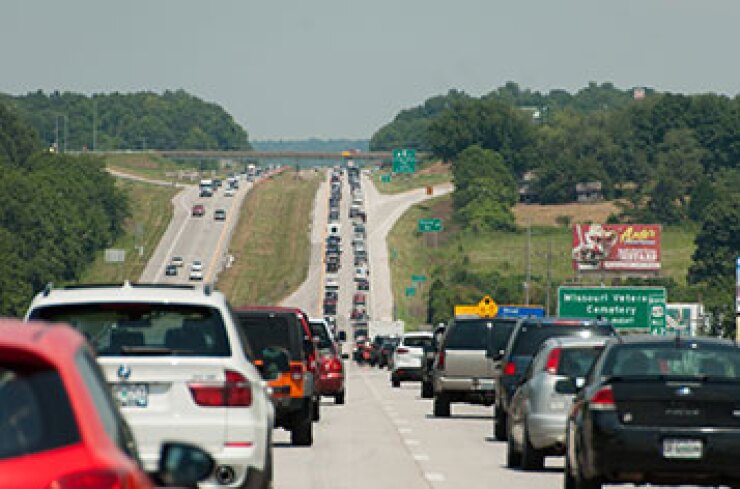
DALLAS -- Tolls on existing interstate highways could become the revenue source needed to maintain and expand the 47,000-mile network in the U.S. if the public can be persuaded to pay to drive on roads that have been toll-free for decades, according to a report by Fitch Ratings.
The billions of dollars that could be realized each year from interstate tolls could help bridge the widening gap between the cost of keeping up and growing the national highway network and the revenues that are currently available for the effort, Fitch managing director Cherian George said in the report, which was released on Thursday.
But any revenue plan that seeks to broaden the use of tolling must be perceived as fair to be successful, George said.
It will need to disabuse the general public of its perception of double taxation, he said. Without this, the plan s success would be threatened as widespread public opposition would be adverse to the financial stability of the framework.
The unwillingness of elected leaders to be upfront about the true costs of highway infrastructure for decades has left unrealistic expectations about the real costs and the obligation of the public to pay for it, he said in the report.
Kicking the can further down the road comes with some peril, he said. Leaders need to own up to this reality and propose realistic options that will likely include taxes and user fees.
The freight movers would fight the imposition of tolls on toll-free interstates because it would add a secondary layer of taxation on the industry, said Sean McNally, vice president for communications at the American Trucking Associations.
"We vehemently oppose the conversion of currently untolled interstates -- the roads and bridges that have been built and maintained using the more than $40 billion the trucking industry pays in annual state and federal fuel and other highway-user taxes -- into toll roads, McNally said. "Beyond double taxation, imposing new tolls will drive traffic to smaller, secondary roads, leading not just to added congestion, but to increased maintenance costs off the main system."
Using interstate tolls as a general transportation revenue source would indeed be double taxation, said Robert Poole, director of transportation policy at the libertarian-leaning Reason Foundation.
But the service life for interstates highways is 50 years, and after that they must be replaced, he said.
Highways and bridges wear out, even with good maintenance, Poole said. So the key word in this debate is toll-financed replacement of worn-out highways and bridges on the interstate system.
Motorists that pay a toll to drive on a replacement interstate that is sufficient to pay for the capital and operating costs of the rebuilt road should receive a rebate on the gasoline tax they pay, he said.
States could issue revenue bonds to rebuild the highways without touching their budgets if interstates were tolled, said Patrick Jones, executive director of the International Bridge, Tunnel and Turnpike Association.
Every highway needs to be maintained even after it is constructed, Jones said. At some point, every highway will need to be repaired and ultimately replaced because resurfacing and pothole filling only go so far.
Federal law has banned tolling of existing interstate segments with few exceptions since the mid-1950s. States can add express toll lanes to existing interstates to reduce traffic congestion but the number of free lanes cannot be reduced.
The Congressional Research Service said last year that tolling the entire interstate highway system at the average per-mile rate of U.S. toll roads would provide $104 billion of new revenue per year.
A tolling program limited to the 17,000 miles of interstates in urban areas would bring in nearly $40 billion per year or about the same level as the federal gasoline tax and other revenue sources, the CRS said.





